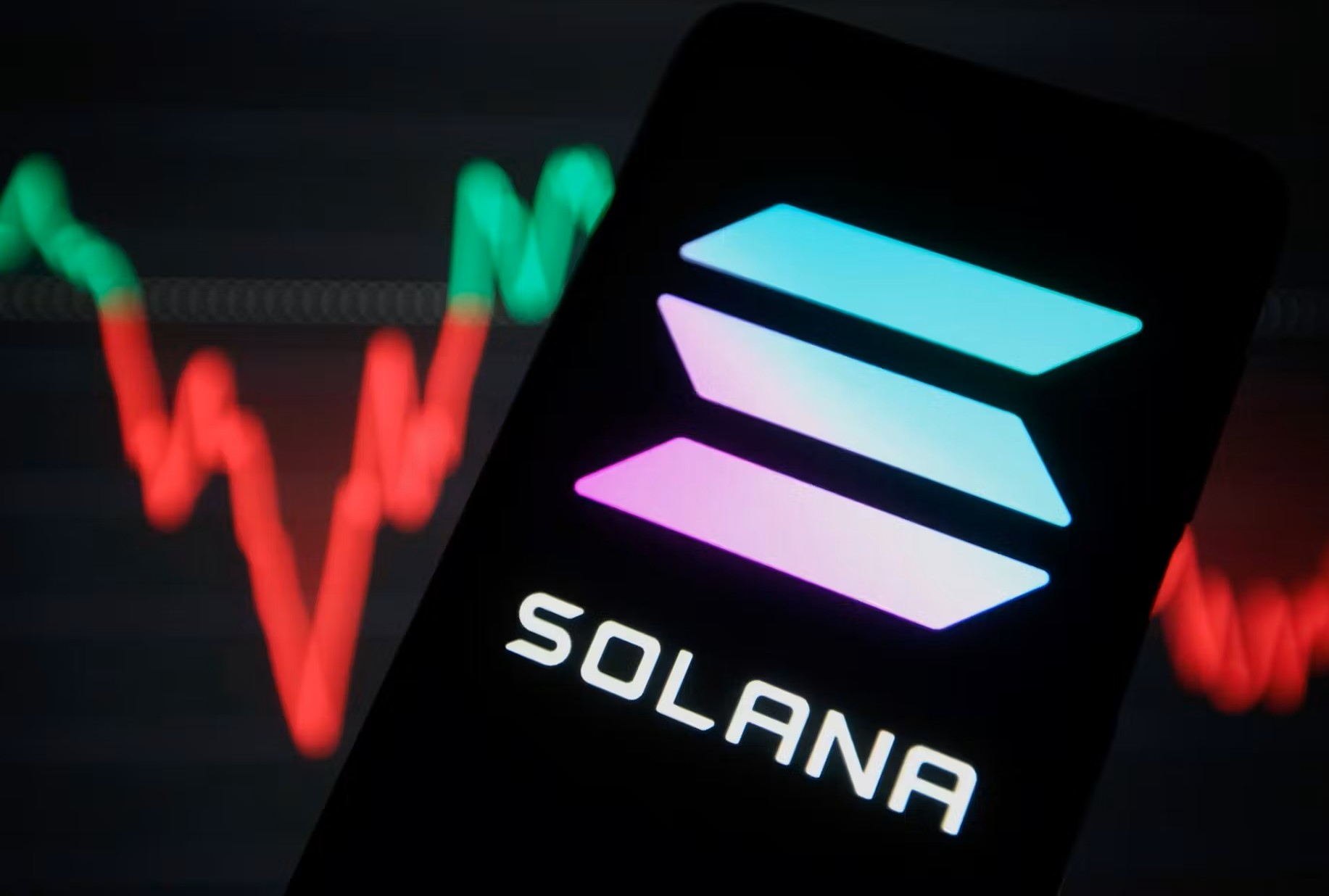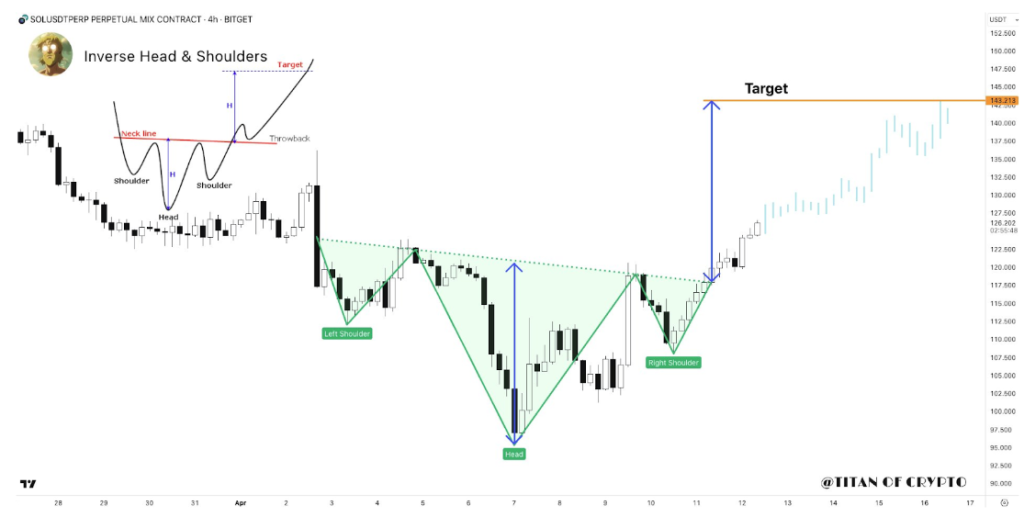Blockchain
SBI, UBS and Chainlink complete pilot for automated tokenized fund solution
Published
5 months agoon
By
admin

SBI Digital Markets, UBS Asset Management, and Chainlink have successfully completed a pilot program showcasing the use of smart contracts to manage tokenized funds.
The companies announced this on Nov. 18, noting that the solution brings automated tokenized fund management to the market and leverages the Chainlink (LINK) infrastructure. With this solution, users can automate their tokenized fund management processes, unlocking blockchain capabilities for the world’s $132 trillion assets under management market.
urrently, the total real-world assets on-chain represent a market of around $13.2 billion.
Solution allows for efficient scaling of tokenized funds
According to a press release, the tokenized fund pilot demonstrated how fund managers can leverage smart contracts and Chainlink’s Cross-Chain Interoperability Protocol to efficiently scale their products on-chain and across distributors.
Central to this initiative is the Digital Transfer Agent smart contract model, a novel fund administration system that utilizes multiple Chainlink oracle networks. SBI’s custodian and fund distributor successfully deployed this model to enable multi-chain subscriptions and redemptions.
As the tokenized funds industry evolves to attract the world’s top players, the demand for on-chain administration is increasing. Notably, a recent report revealed that 93% of fund services providers do not offer full automation for their data inputs and workflow processes. This lack of automation creates key bottlenecks for traditional fund operators.
However, smart contracts, oracle networks, and tokenized funds provide the asset management industry with a pathway to full automation.
“This new way of launching fund structures and administering them via smart contracts empowers both fund managers and their service providers to deliver new on-chain financial products and lower operational costs to investors, both things they are actively looking for,” said Winston Quek, chief executive officer at SBI Digital Markets.
The solution, currently live on various blockchain testnets, will soon go to mainnet.
SBI Digital Markets, UBS Asset Management, and Chainlink announced the solution at the Singapore Fintech Festival, launching it as part of the Monetary Authority of Singapore’s ‘Project Guardian.’
This development follows a partnership between Swift, UBS Asset Management, and Chainlink aimed at bridging tokenized assets with legacy payment systems. UBS also recently unveiled a pilot for cross-border payments called “UBS Digital Cash”.
Source link
You may like


Apple Delists 14 Crypto Apps in South Korea Including KuCoin and MEXC Exchanges Amid Regulatory Crackdown


Athens Exchange Group eyes first onchain order book via Sui


Futureverse Acquires Candy Digital, Taps DC Comics and Netflix IP to Boost Metaverse Strategy


Court Grants Ripple And SEC’s Joint Motion To Suspend Appeal


AVAX Falls 2.1% as Nearly All Assets Trade Lower


What is a VTuber, and how do you become one in 2025?
Blockchain
Athens Exchange Group eyes first onchain order book via Sui
Published
2 hours agoon
April 16, 2025By
admin

Greek exchange Athens Exchange Group has moved closer to adopting a Sui-based order book following its collaboration with Mysten Labs.
On April 16, the Sui (SUI) team announced that Athens Exchange Group, or ATHEX, had finalized the technical design for an onchain fundraising platform that will leverage zero-knowledge proofs on the Sui blockchain.
ATHEX’s ZK-powered fundraising platform will help the stock exchange enhance its offering with privacy and speed, bolstering its growth in traditional capital markets.
This nod to blockchain innovation and integration follows Sui contributor Mysten Labs’ partnership with the Athens Exchange Group in March 2024.
The collaboration between the two platforms aims to leverage their respective ecosystems to deliver the technical design for ATHEX’s Electronic Book Building (EBB), the exchange’s fundraising feature. By tapping into Sui’s technology and tooling, the company will be able to integrate zero-knowledge proofs into EBB’s bidding process.
Currently, Athens Exchange Group and Mysten Labs are eyeing a proof of concept, with this a key milestone towards building the first onchain order book for a stock exchange.
“The focus on privacy-preserving mechanisms, combined with Sui’s unparalleled speed and security, will enable us to build a state-of-the-art PoC that can evolve into a full-fledged onchain order book, setting a new benchmark for the industry,” said Dr. Kostas Kryptos Chalkios, Chief Cryptographer and Co-Founder of Mysten Labs
ATHEX will benefit from a platform that combines privacy-preserving mechanisms, speed and security.
Sui’s capacity to scale and handle transactions in parallel, with industry-leading throughput will be crucial to the stock exchange.
“By integrating zero-knowledge proofs, we aim to uphold the highest standards of compliance and data integrity while boosting operational efficiency for all market participants,” said Nikos Porfyris, chief operating officer at Athens Exchange Group.
Sui is the 10th largest blockchain by total value locked per DeFiLlama with over $1.18 billion in TVL.
Source link
Altcoin
Solana Price Eyes Breakout Toward $143 As Inverse Head & Shoulders Pattern Takes Shape On 4-hour Chart
Published
3 days agoon
April 13, 2025By
admin
Reason to trust

Strict editorial policy that focuses on accuracy, relevance, and impartiality
Created by industry experts and meticulously reviewed
The highest standards in reporting and publishing
Strict editorial policy that focuses on accuracy, relevance, and impartiality
Morbi pretium leo et nisl aliquam mollis. Quisque arcu lorem, ultricies quis pellentesque nec, ullamcorper eu odio.
Solana appears to be gearing up for a major technical breakout, with recent price action building up an interesting chart formation. A familiar bullish pattern has formed, and if validated, it could drive the price to a level not seen in recent weeks. This new development was highlighted by popular analyst Titan of Crypto on social media platform X.
Pattern Breakout Sets $143 In Sight
Like every other large market-cap cryptocurrency, Solana has experienced an extended period of price crashes since late February. In the case of Solana, this price crash has been drawing out since January, when it reached an all-time high of $293 during the euphoria surrounding the Official Trump meme coin. Since then, Solana has corrected massively, even reaching a low of $97 on April 7.
Related Reading
The price action before and after this $97 low has created an interesting formation on the 4-hour candlestick timeframe chart. As crypto analyst Titan of Crypto noted, this formation is enough to send Solana back up to $143.
At the heart of the latest bullish outlook is a clearly defined inverse head and shoulders structure, which is known for its reliability in signaling a reversal from a downtrend to a bullish breakout. The left shoulder of the pattern began forming in early April as Solana attempted to rebound from sub-$110 levels. The subsequent drop to the $96 bottom on April 7 formed the head of the structure. From there, a recovery started as buyers cautiously stepped back in, giving rise to the right shoulder.
The breakout of the neckline resistance has taken place in the past 24 hours. With this in mind, Titan of Crypto predicted that $143 becomes the next logical destination based on the measured move from the head to the neckline.

Image From X: Titan of Crypto
Momentum Strengthens With Structure Confirmation
Looking at the chart shared by the analyst, the momentum behind Solana’s price movement appears to be gaining strength. Trading volume is an important metric in evaluating the strength of a breakout, and the volume accompanying the recent breakout above the neckline seemingly confirms it.
Particularly, Solana has seen a 5.3% increase in its price during the past 24 hours, with trading volume surging by 3.76% within this timeframe to $4.21 billion.
Although it is common to see a throwback or minor consolidation just above the neckline, the projected path suggests continued upside as long as price action holds above that key breakout zone.
Related Reading
At the time of writing, Solana is trading at $129, 10% away from reaching this inverse head-and-shoulder target. A move to $143 would not only represent a meaningful recovery from April’s lows but could also improve the confidence in Solana’s price trajectory moving into Q2. The next outlook is what happens after it reaches this target of $143, which will depend on the general market sentiment.
Featured image from The Information, chart from TradingView
Source link
Blockchain
Web3 search engine can reshape the internet’s future
Published
6 days agoon
April 10, 2025By
admin
Disclosure: The views and opinions expressed here belong solely to the author and do not represent the views and opinions of crypto.news’ editorial.
The internet is at a crossroads. People are continuing to express their frustration and dissatisfaction with the internet—double that of what they felt 20 years ago—as centralized platforms are facing increasing scrutiny for their opaque algorithms, data exploitation, and bias in content curation.
Most online platforms today run on web2, where FAANG companies—Meta, formerly known as Facebook, Amazon, Apple, Netflix, and Alphabet, formerly known as Google—control the data, serve ads, and track users for profit. Users are ultimately the product, and while these companies have added billions in market cap by turning users into the product, this is far from the best model for creating a sustainable knowledge engine like the internet. Participants in the internet ecosystem are starting to wake up to the fact that this model doesn’t really work for anyone except those FAANG companies.
Nowhere are these problems more evident than in search. Search is one of the most fundamental activities on the internet and, thus, stands at the forefront of “gatekept content.” If the internet really is our collective knowledge engine, then search is the first step in acquiring that knowledge.
It is sometimes even the last and only step in using the internet to acquire knowledge, considering that the first result on a Google page has a clickthrough rate of over 25 percent and the tenth result, proportionately, only has a tenth of that. Presumably, a fraction of that fraction even makes it to the second page of results.
Now, consider Google’s prominent position in all of search. Even while Google’s search market share last year dropped below 90 percent for the first time in 10 years, it is still within the range of the popular vote total for a third-world dictator. So, the One True Result that has been served up by Google’s algorithm is getting a quarter of the traffic for the search engine that still holds somewhere in the area of 90 percent of the search engine market share. That’s a lot of opaque and centralized power centered in one private company.
Even while competitors like DuckDuckGo and Bing try to carve out some of their own market share by offering AI-powered search or increased privacy, as centralized companies, they fundamentally present the same problem Google does, without the market share. The integrity of our search results has never been more crucial, and we can’t leave it to web2 structures to be good custodians of that integrity, especially when the priorities of those structures to protect their users can turn on a dime.
The solution is here: Enter web3
How do we put how information is organized back into the hands of users, especially as the search engines promise to become even more inscrutable with the implementation of AI and the obscuring of sources?
One possible way to put that power back into the hands of users is what has thus far been built with web3. Web3 can allow us to build a decentralized, community-powered search engine while participating in a truly open and trustless search ecosystem. A decentralized node-powered ecosystem can ensure fair, unbiased, and censorship-resistant search results, free from the corporate agendas that have shaped traditional search engines.
Instead of relying on corporations, web3 platforms are permissionless, sovereign, and decentralized. They are powered by blockchain and smart contracts instead of centralized corporate servers that open users to vulnerabilities and data insecurity. Web3 gives users control back over their data, identity, and digital assets.
There are a host of other ways in which web3 can empower the user. These include self-sovereignty, permissionless control of assets without fear of confiscation, self-custodial staking and earning, access for the unbanked, peer-to-peer transfers, and, perhaps most important of all, that fundamental decentralization, which eliminates single points of failure while being resistant to manipulation.
There is also no behavioral profiling, no centralized control, and no data tracking. This means no censorship risk, no suppression of competing voices, and a search experience that respects user privacy.
Users must work to reclaim power
Search engines today function as gatekeepers of information, with centralized platforms deciding which content is amplified, suppressed, or monetized based on user profiles and corporate interests. Users deserve a fairer and ultimately better search experience, one where ranking algorithms are not influenced by personal data, past behavior or profit-driven agendas.
The problem is bound to get worse as the AI race heats up and companies look for new data sources on which to train these AIs. Whatever promises a centralized company might have once made to the user about not tracking or using data, again, these priorities can shift very quickly in something like an AI technology realignment. The beauty of web3 is that the structure of the technology itself prevents such exploitation.
Web3 may seem abstract right now, but it’s not all that different from the kind of technical fluency users needed to acquire as they went from the personal computer to the networked personal computer of web2. Users essentially just have to trade out an encrypted password shared with a central web service (and who knows where else) for an encrypted wallet that only they can control and access. The benefits of full control over assets and data will far outweigh whatever stumbling blocks there are to this learning curve.
Users have shown that they are willing to trade a lot for convenience, but perhaps they’ve reached a breaking point in that bargain. Now is the time for web3 to take advantage.

Timothy Enneking
Timothy Enneking is the CEO of Presearch, a decentralized, privacy-focused, web3 search engine. He was initially invited to join the project seven years ago after he recommended it during a CNBC Asia interview on crypto, and he remained an advisor for four years. He rejoined Presearch in August 2023 when the founder invited him to become the CEO and bring the project to the next level. He is the founder and Principal of Digital Capital Management, LLC (“DCM”), which runs CAF 2017, a crypto trading fund. He is also the founder and managing partner of Psalion, which manages two venture capital funds and a yield farming operation. For nine years ending in June 2024, Mr. Enneking was the Chief Investment Officer of Mana Companies Asset Management, a medium-sized family office (which did not invest in crypto). Prior to those activities, Mr. Enneking founded and managed Tera Capital Fund, a fund of funds focused on Eastern Europe (established in 2004). Simultaneously, in 2013, he was engaged to manage the world’s first Bitcoin fund. Mr. Enneking also has extensive M&A experience, having completed more than 70 transactions with an aggregate transaction value of over US$12 billion. He speaks near-native French and Russian, as well as German. He has five university degrees, all in international business and law.
Source link

Apple Delists 14 Crypto Apps in South Korea Including KuCoin and MEXC Exchanges Amid Regulatory Crackdown

Athens Exchange Group eyes first onchain order book via Sui

Futureverse Acquires Candy Digital, Taps DC Comics and Netflix IP to Boost Metaverse Strategy
Court Grants Ripple And SEC’s Joint Motion To Suspend Appeal

AVAX Falls 2.1% as Nearly All Assets Trade Lower

What is a VTuber, and how do you become one in 2025?

Top Expert’s Update Sets $10 Target

How Academia Interacts With The Bitcoin Ecosystem

AB DAO and Bitget Launch Dual Reward Campaign, Distributing $2.6M Worth of $AB Globally

AI crypto tokens at risk as Nvidia faces restrictions on China exports

Coinbase Urges Australia to Vote for Crypto Progress in May

How High Would Pi Network Price Go If Pi Coin Adopts Transparency to Avoid Mantra Pitfalls

XRP’s ‘Rising Wedge’ Breakdown Puts Focus on $1.6 Price Support

China selling seized crypto to top up coffers as economy slows: Report

Ethereum Price Dips Again—Time to Panic or Opportunity to Buy?

Arthur Hayes, Murad’s Prediction For Meme Coins, AI & DeFi Coins For 2025

Expert Sees Bitcoin Dipping To $50K While Bullish Signs Persist

Aptos Leverages Chainlink To Enhance Scalability and Data Access

Bitcoin Could Rally to $80,000 on the Eve of US Elections

Crypto’s Big Trump Gamble Is Risky

Sonic Now ‘Golden Standard’ of Layer-2s After Scaling Transactions to 16,000+ per Second, Says Andre Cronje

Institutional Investors Go All In on Crypto as 57% Plan to Boost Allocations as Bull Run Heats Up, Sygnum Survey Reveals

Ripple-SEC Case Ends, But These 3 Rivals Could Jump 500x

3 Voting Polls Show Why Ripple’s XRP Price Could Hit $10 Soon

Has The Bitcoin Price Already Peaked?

The Future of Bitcoin: Scaling, Institutional Adoption, and Strategic Reserves with Rich Rines

A16z-backed Espresso announces mainnet launch of core product

Xmas Altcoin Rally Insights by BNM Agent I

Blockchain groups challenge new broker reporting rule

I’m Grateful for Trump’s Embrace of Bitcoin
Trending

 24/7 Cryptocurrency News5 months ago
24/7 Cryptocurrency News5 months agoArthur Hayes, Murad’s Prediction For Meme Coins, AI & DeFi Coins For 2025

 Bitcoin3 months ago
Bitcoin3 months agoExpert Sees Bitcoin Dipping To $50K While Bullish Signs Persist

 24/7 Cryptocurrency News3 months ago
24/7 Cryptocurrency News3 months agoAptos Leverages Chainlink To Enhance Scalability and Data Access

 Bitcoin5 months ago
Bitcoin5 months agoBitcoin Could Rally to $80,000 on the Eve of US Elections

 Opinion5 months ago
Opinion5 months agoCrypto’s Big Trump Gamble Is Risky

 Altcoins3 months ago
Altcoins3 months agoSonic Now ‘Golden Standard’ of Layer-2s After Scaling Transactions to 16,000+ per Second, Says Andre Cronje

 Bitcoin5 months ago
Bitcoin5 months agoInstitutional Investors Go All In on Crypto as 57% Plan to Boost Allocations as Bull Run Heats Up, Sygnum Survey Reveals

 Price analysis5 months ago
Price analysis5 months agoRipple-SEC Case Ends, But These 3 Rivals Could Jump 500x


